Politics
Russian envoy says trade with Hong Kong can grow under strong Moscow-Beijing ties
Published
5 months agoon
By
Ekwutos Blog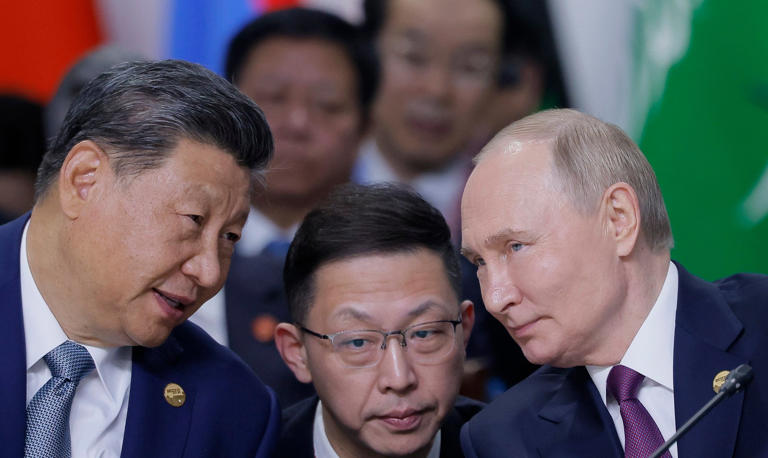
China, Russia can do more to support companies affected by Western sanctions, says Consul General Anatoly Kargapolov
This is the eighth in a series of interviews with consuls general of emerging and belt and road economies with which Hong Kong is keen to build ties. Here are the previous ones.
Russian companies have faced difficulties accessing Hong Kong’s banking services following Western sanctions, but the country’s top envoy to the city has brushed off the impact on bilateral trade.
Consul General Anatoly Kargapolov said growing ties between China and Russia had opened up new opportunities for collaboration with the city, urging the financial hub to host economic forums with former Soviet states.
Do you have questions about the biggest topics and trends from around the world? Get the answers with SCMP Knowledge, our new platform of curated content with explainers, FAQs, analyses and infographics brought to you by our award-winning team.
He spoke to the Post in an exclusive interview days before leaders Xi Jinping and Vladimir Putin said on the sidelines of the 16th Brics summit in Kazan, Russia, last week that both countries were committed to boosting cooperation for a “fair world order”.
Since Russia invaded Ukraine in February 2022, it has faced a slew of sanctions from the United States, the European Union and other Western countries. It was also cut off from Swift, the main international payment messaging network.
Some Russian companies experienced difficulties with banking services in Hong Kong, but Kargapolov said that “was never critical for developing bilateral trade”.
He said US sanctions on dozens of Hong Kong companies for their alleged ties to Russia were meant to “negatively influence” Russia-China trade.
While the affected companies had to navigate the challenges they faced themselves, he added that Moscow and Beijing should support the business community.
In September, the US Treasury Department’s Office of Foreign Assets Control sanctioned 26 Hong Kong companies and another based in the city and mainland China. That followed sanctions last December on eight companies in the city.
On a visit to Hong Kong in July, Ukraine Foreign Minister Dmytro Kuleba urged Chief Executive John Lee Ka-chiu to prevent Russia from using the city to evade Western restrictions.
Lee assured Kuleba that the city adhered to global sanctions and local laws.
Kargapolov called those sanctions “illegal”, saying: “The global economy is grossly distorted by the methods that the West is using to punish those who do not follow its ‘rules’, which are steeped in neocolonialism, and to wipe out its competitors.”
He added that Western countries tried to use the same method against Russia-China trade and Hong Kong in particular, in their attempts to undermine the city’s status as a global financial centre.
Despite the challenges, Russia’s relationship with Hong Kong was part of its “comprehensive partnership and strategic cooperation” with the mainland, which was experiencing “remarkable growth” and opening up new opportunities for deepening cooperation, he said.
He also highlighted the city’s role as the largest source of offshore yuan, which Russia had increasingly turned to for foreign trade in recent years.
Hong Kong’s bilateral trade with Russia climbed to US$5.8 billion last year, up 50.9 per cent from 2022, according to official data. Exports surged by 123 per cent, while imports were up 11.2 per cent.
To boost trade and business ties further, Kargapolov hoped Hong Kong could host economic events focused on member countries of the Commonwealth of Independent States (CIS), which comprised most of the former Soviet Union states in Central Asia and Eastern Europe.
He noted the Hong Kong government had begun paying more attention to countries in the Asean bloc, or the Association of Southeast Asian Nations, and the Middle East, and said that Russia could also supplement the development of the city.
“This will help to extend the economic cooperation between CIS countries and Hong Kong, and with Russia in particular,” he said.
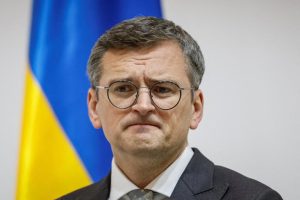
Dmytro Kuleba, Ukraine’s foreign minister, in July urged Chief Executive John Lee to prevent Russia from using Hong Kong to evade Western restrictions. Photo: Reuters
Russia’s exports to the city mainly consisted of precious metals such as silver and platinum, as well as pearls and other precious stones, according to Trade Development Council data.
Kargapolov said there was “huge interest” from Russian companies hoping to send agricultural and food products to the city for re-export to Asean countries and the mainland.
Hong Kong also had unique advantages within the framework of the Greater Bay Area, linking the city with Macau and nine cities in Guangdong province, including its international connectivity, financial infrastructure and common law legal system.
Kargapolov said Hong Kong’s position as a research and development hub also offered new opportunities for cooperation in areas including artificial intelligence and fintech such as banking software.
Lighter side
What surprised you most about Hong Kong when you first arrived?
I was surprised that on such a small piece of land you managed to build great transport infrastructure and business infrastructure. It is a city that combines and embraces everything active people would wish to have.
In a small area everything is accessible. In 20 minutes I can go from the office to the trail to go hiking. I also can enjoy the seashore.
Do you have a favourite local dish?
I like the seafood. Sometimes I go to the wet market, buy some fish and cook it myself. In Moscow, we have mostly frozen products.
But here, you can have a fresh catch and I can treat my family to some dishes.
Where do you usually take guests when they visit Hong Kong?
No 1, we take them to The Peak. No 2, we take them to the [Big] Buddha. No 3, we take them to Tai Kwun because it is an iconic place – the architecture, heritage, cuisine.
If this is not enough, we take them to Tai Po, the fishing village, and we take a boat ride to see the dolphins. We are not lucky every time, but I have seen them.
More Articles from SCMP
Surprised David Eustace breaks new ground with 240-1 Happy Valley double
Discover the quirky toilet habits of wombats, sloths, and more
Why North Korea is starting to become a ‘forgotten’ space for China and the US
PLA Navy tests South China Sea defences as Vietnam and Philippines expand footprint
This article originally appeared on the South China Morning Post (www.scmp.com), the leading news media reporting on China and Asia.
Copyright (c) 2024. South China Morning Post Publishers Ltd. All rights reserved.
You may like


50 Cent actually motivated me when he refused to take pictures with me!..-Davido
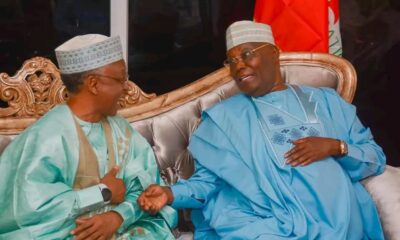

Datti advises Atiku to drop 2027 presidential bid


“If we have no child after 10 years of marriage and the fault is from my husband, I will suggest getting pregnant by another man – Nigerian woman says”
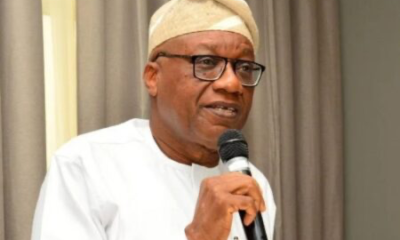

BREAKING: INEC Gets ‘Acting Chairman’ Amid Mahmood Yakubu’s Alleged Sacking


One dead, four injured in Osun Polytechnic cult clash


Lagos launches probe after overhead water tank kills woman
Politics
Datti advises Atiku to drop 2027 presidential bid
Published
1 hour agoon
April 10, 2025By
Ekwutos Blog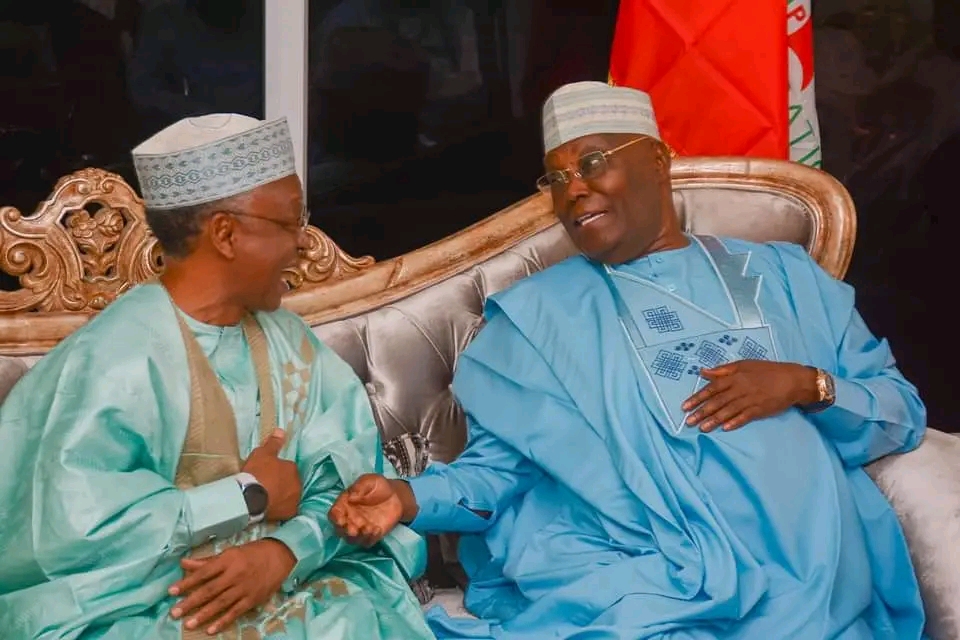
The National Vice Chairman (North West) of the All Progressives Congress (APC), Garba Datti Muhammad has advised former Vice President Atiku Abubakar and former Kaduna Governor Nasir Ahmed El-Rufai to reconsider their political paths ahead of the 2027 general elections.
Datti, a former member of the House of Representatives, specifically urged Atiku to forgo another presidential bid, stating: “As we approach the next general elections, you are at it again. Having sensed that your party, the PDP, may not cede the presidential ticket to you, you are now considering joining forces with some aggrieved politicians to form a coalition to challenge President Bola Ahmed Tinubu come 2027.”
He further advised Atiku, saying, “In your best interest and the interest of Nigerians, it is better you drop the idea of contesting for president in 2027, by which time you would have already turned 80 years. The Wazirin Adamawa, you should rather remain the elder statesman that you currently are.”
Datti also urged Atiku to follow the example of another former Vice President, Arc. Muhammad Namadi Sambo, who has remained an elder statesman since leaving office in 2015.
He also cautioned Atiku not to be swayed by figures like El-Rufai, who Datti claims are attempting to lead him toward forming a coalition for the 2027 elections:
“In truth, even if you contest, you have nothing new to offer. Remember, you are also a proponent of subsidy removal. It is on record that, as Vice President, you spearheaded the privatization of some key national assets when you chaired the committee on privatization during the Obasanjo administration, while former governor El-rufai was the Director General of the Bureau for Public Privatization (BPP).”
Addressing El-Rufai, Datti expressed disappointment in his exit from the APC, despite being a founding member of the party:
“It is on record that you were part of the founding members of the APC. Having worked for the party tirelessly and served as governor under its platform for eight years, it is rather worrisome that you decided to leave APC at this critical point.”
Datti referenced El-Rufai’s past media statements, highlighting:
“While still serving as governor in 2022, during one of your media chats, you averred that ‘the moment I leave APC, then I have quit politics altogether.’ At this critical point, you should ponder and reconcile with the APC or quit politics altogether.”
He further criticized El-Rufai’s sudden turn into criticism, given that the former governor had previously stated his lack of interest in positions within the Tinubu administration:
“The world knows that it was you who announced that you were not interested in any position in the President Bola Ahmed Tinubu administration. Why should you turn to a critic overnight just because you perceived things were not going your way when you had unfettered access to the leadership of the party and the President?”
On broader political matters, Datti advised against political miscalculations, warning:
“I would like to tell you for free that no PDP governor will join the SDP because their party already has a structure on the ground. Who will leave certainty to uncertainty? You may end up committing a serious political miscalculation.”
Datti also stressed the importance of supporting the South’s eight-year tenure before considering a rotation of the presidency back to the North:
“One would expect that as a leading figure who supported the presidency to go to the South in 2023, you would support the zone to finish its eight years before canvassing for the rotation of the position to the North.”
He acknowledged the significant strides made in the North West under President Tinubu’s administration, noting:
“Currently in the North-West, we have the Speaker of the House of Representatives from Kaduna State and the Deputy President of the Senate from Kano State. It has never happened in the history of Nigeria where two Presiding Officers of the National Assembly came from the same zone.”
Datti also praised Tinubu’s efforts in reshaping the North West’s leadership:
“Additionally, the North West also got 12 ministerial appointments some of whom are manning critical ministries such as the two ministers of Defence; Budget and National Planning; Environment; two ministers of Housing; Culture and Creative Economy; Ministers of State for FCT, Education and Works etcetera. The zone also has the two Service Chiefs: the Chief of Defence Staff from Kaduna State, and the Chief of Air Staff from Kano State.”
Furthermore, Datti highlighted the improvements seen in Kaduna State, where:
“The Speaker, working in collaboration with Governor Uba Sani, has so far attracted about seven higher institutions to the state. The Speaker and Governor Uba Sani have also attracted the metro rail line (intra-city) worth about 250 billion Naira, already approved by President Bola Ahmed Tinubu, which will run from Rigachikun to Maraban Rido. This will ameliorate the transportation challenges residents of Kaduna metropolis face on a daily basis.”
He concluded by emphasizing the positive changes under the Tinubu administration, including improvements in the economy and prices:
“The Tinubu administration is also working assiduously to make life better for Nigerians following subsidy removal. Naira is now gaining strength by the day. Prices of foodstuffs are dropping drastically by the day. The economy is gradually taking a new turn.”
Politics
BREAKING: INEC Gets ‘Acting Chairman’ Amid Mahmood Yakubu’s Alleged Sacking
Published
2 hours agoon
April 10, 2025By
Ekwutos Blog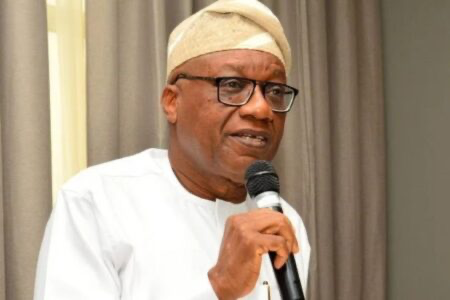
The Independent National Electoral Commission (INEC) has a new acting chairman in the person of Mr Sam Olumekun.
Olumekun, who is INEC’s National Commissioner and Chairman of the Information and Voter Education Committee, was referred to as acting INEC Chairman at a meeting he held with the Labour Party leadership on Wednesday.
Ekwutosblog understands that Professor Yakubu is currently in the Gambia to participate in the ECONEC (ECOWAS Network of Electoral Commissions) meeting.
Per constitutional provision, the tenure of an INEC chairman is five years and they have historically left at the end of their terms if not renewed.
Yakubu assumed the role on November 9, 2015. He became the first INEC chairman to be sworn in for second term after former President Muhammadu Buhari renewed his appointment in 2020.
Section 157 of the constitution stipulates that the president can only remove the INEC chairman with the support of two-thirds of the Senate.
Meanwhile, the new acting chairman, Olumekun, met with a delegation of the Labour Party, led by Abia State Governor Dr Alex Otti, who visited INEC headquarters in Abuja.
Days ago, reports claimed that President Bola Tinubu had sacked Yakubu as INEC chairman and replaced him with Professor Bashiru Olamilekan.
However, the presidency debunked the reports. The Senior Special Adviser to the President on Digital and New Media, O’tega Ogra, urged the public to disregard the reports as “fake news”.
Ogra noted that such an announcement would come through official channels such as the Office of the Secretary to the Government of the Federation.
Amid reports of his sacking, Professor Yakubu presided over INEC’s weekly meeting at the Commission’s headquarters in Abuja on Tuesday.
The meeting included several national commissioners, including Olumekun.
“Crucial decisions would be taken at the meeting,” INEC had said in a tweet.
Politics
Anambra 2025: Onyeze emerges Accord Party guber candidate
Published
3 hours agoon
April 10, 2025By
Ekwutos Blog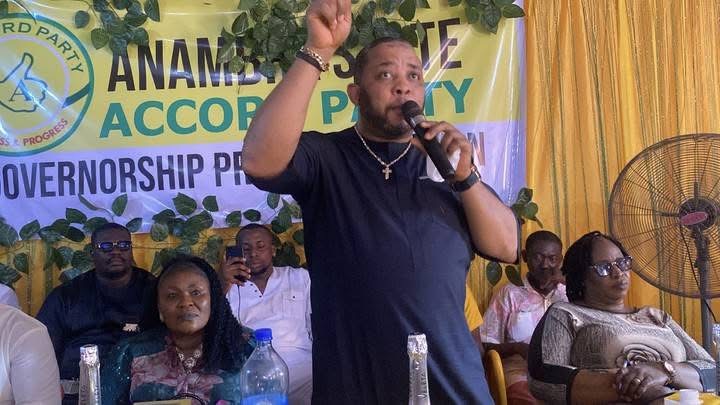
Anambra philanthropist, Chief Chidi Charles Onyeze, has emerged the governorship candidate of the Accord party for the November 5 2025 Anambra governorship election.
He was declared unopposed during the Party’s Primary election process held at East End Hotel, Aroma, Awka, on Tuesday, April 8, 2025.
The exercise was witnessed by thousands of party chieftains, members, INEC, security, and the media.
By his emergence, Chief Onyeze has become the youngest governorship candidate, who will participate in the election alongside the incumbent governor of the state, Prof Chukwuma Charles Soludo (APGA), Prince Nicholas Ukachukwu (APC), Mr. Jude Ejimofor (PDP), Chief George Muoghalu (LP) and other awaiting candidates from other political parties.


Speaking to Journalists shortly after the process, Onyeze said he is contesting the election to address the current challenges of unemployment, insecurity, and poor educational system in Anambra State.

50 Cent actually motivated me when he refused to take pictures with me!..-Davido

Datti advises Atiku to drop 2027 presidential bid

“If we have no child after 10 years of marriage and the fault is from my husband, I will suggest getting pregnant by another man – Nigerian woman says”
Trending

 Trending6 months ago
Trending6 months agoNYA demands release of ‘abducted’ Imo chairman, preaches good governance
- Business6 months ago
US court acquits Air Peace boss, slams Mayfield $4000 fine

 Politics6 months ago
Politics6 months agoMexico’s new president causes concern just weeks before the US elections
- Entertainment6 months ago
Bobrisky transferred from Immigration to FCID, spends night behind bars
- Entertainment6 months ago
Bobrisky falls ill in police custody, rushed to hospital

 Politics6 months ago
Politics6 months agoRussia bans imports of agro-products from Kazakhstan after refusal to join BRICS

 Politics6 months ago
Politics6 months agoPutin invites 20 world leaders
- Politics1 year ago
Nigerian Senate passes Bill seeking the establishment of the South East Development Commission.

